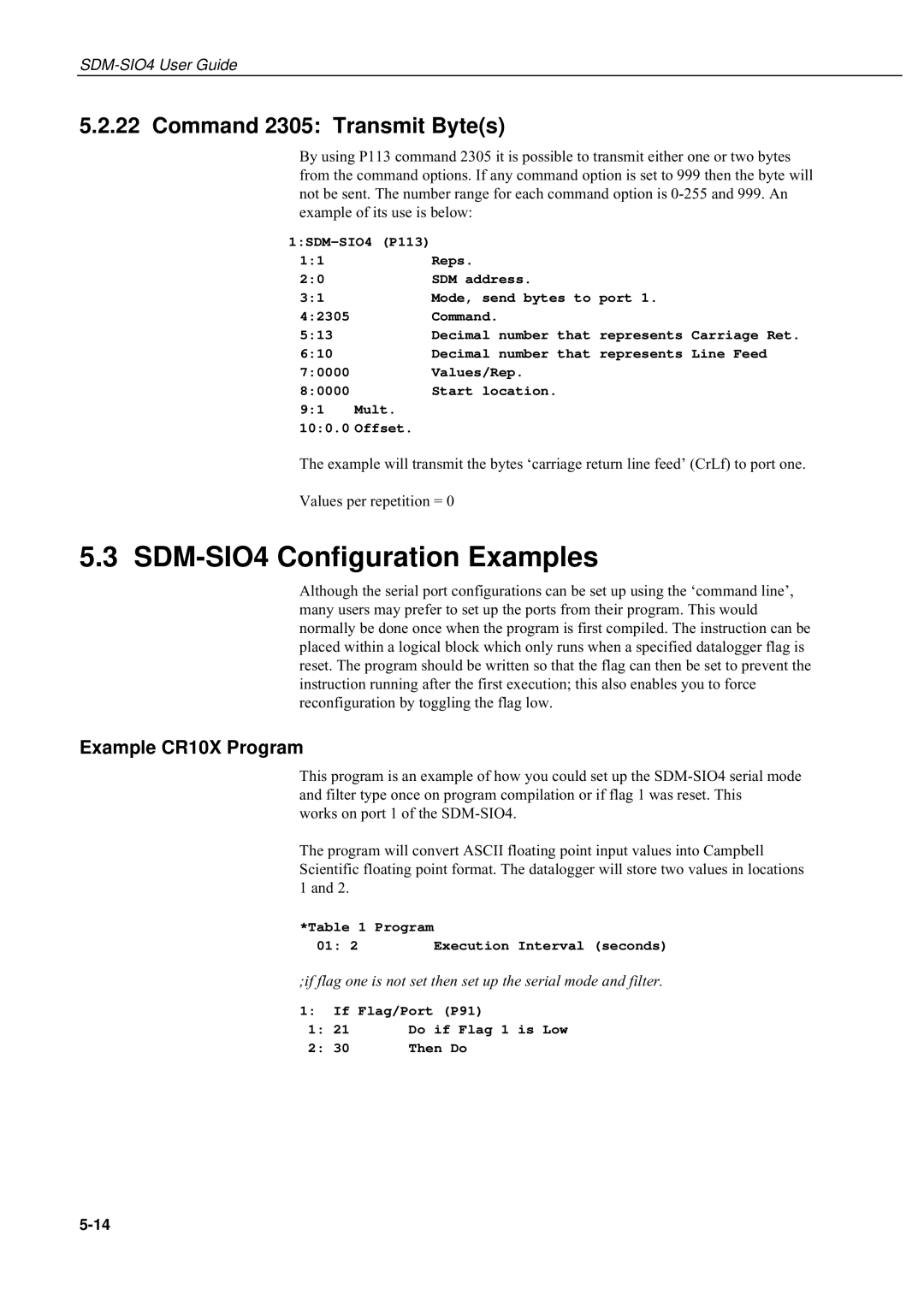5.2.22 Command 2305: Transmit Byte(s)
By using P113 command 2305 it is possible to transmit either one or two bytes from the command options. If any command option is set to 999 then the byte will not be sent. The number range for each command option is
1:1 | Reps. |
2:0 | SDM address. |
3:1 | Mode, send bytes to port 1. |
4:2305 | Command. |
5:13 | Decimal number that represents Carriage Ret. |
6:10 | Decimal number that represents Line Feed |
7:0000 | Values/Rep. |
8:0000 | Start location. |
9:1 | Mult. |
10:0.0 Offset.
The example will transmit the bytes ‘carriage return line feed’ (CrLf) to port one.
Values per repetition = 0
5.3 SDM-SIO4 Configuration Examples
Although the serial port configurations can be set up using the ‘command line’, many users may prefer to set up the ports from their program. This would normally be done once when the program is first compiled. The instruction can be placed within a logical block which only runs when a specified datalogger flag is reset. The program should be written so that the flag can then be set to prevent the instruction running after the first execution; this also enables you to force reconfiguration by toggling the flag low.
Example CR10X Program
This program is an example of how you could set up the
works on port 1 of the
The program will convert ASCII floating point input values into Campbell Scientific floating point format. The datalogger will store two values in locations 1 and 2.
*Table 1 Program
01: 2 Execution Interval (seconds)
;if flag one is not set then set up the serial mode and filter.
1:If Flag/Port (P91)
1:21 Do if Flag 1 is Low
2: 30 | Then Do |
